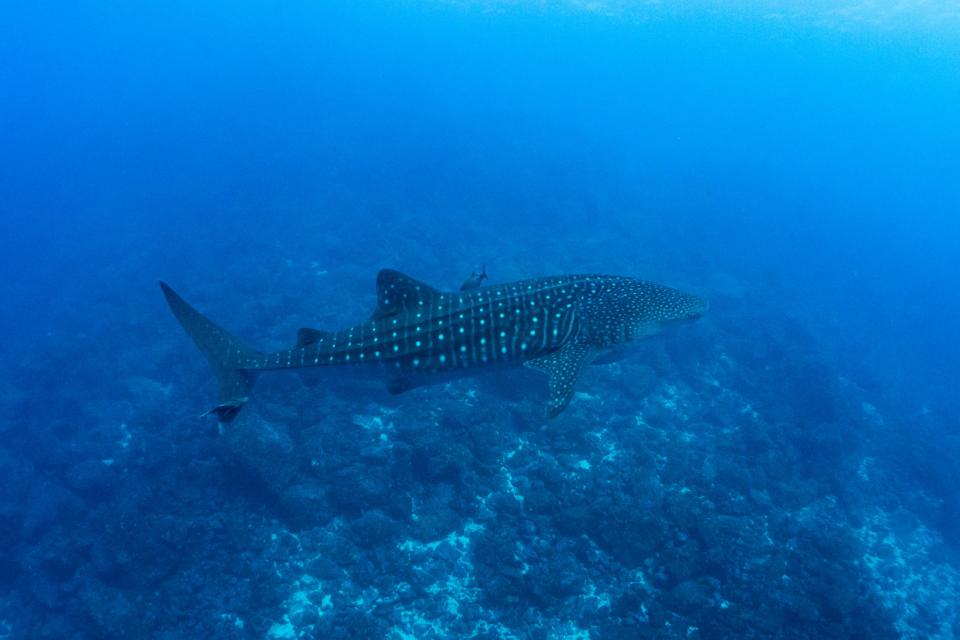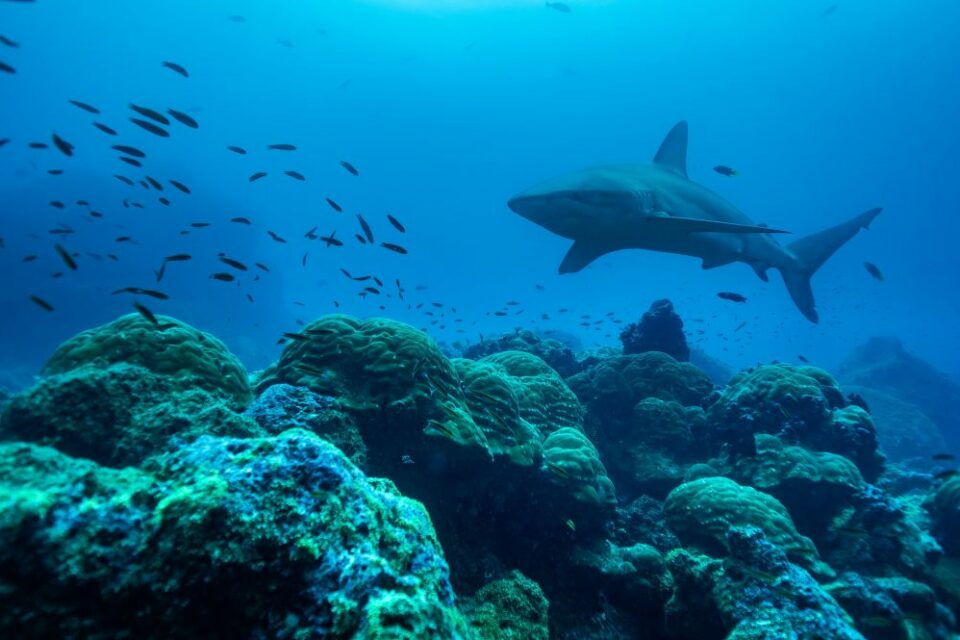

Sustainable Fisheries in the Galapagos
An increasing level of pressure is being placed on fisheries as a result of overexploitation. In some parts of the world coastal communities are heavily dependent on capture fisheries for livelihoods.
An increasing level of pressure is being placed on fisheries as a result of overexploitation. In some parts of the world, coastal communities are heavily dependent on capture fisheries for livelihoods and food. Therefore it is extremely important that fisheries are used sustainably, for the good of marine ecosystems and the communities that depend on them.
Importance of Sustainable Fisheries
The development and management of sustainable fisheries around the world is extremely important for a number of reasons; to ensure that future generations will be able to continue to thrive and rely on fish for an essential food resource and income, to protect the ecosystem that a wide variety of species depend on, and to reduce vulnerability of marine ecosystems to future climate change.
In the Galapagos Islands, the number of fishermen has been steadily increasing. If intensive fishing continues without proper management, species populations within could be drastically negatively impacted. One example of overexploitation of marine species in the Galapagos is the overfishing of sea cucumbers. Sea cucumbers have become increasingly popular in Asian markets for their medicinal purposes. As a result of this increasing demand, they have become more valuable, and so are targeted by increasing numbers of fishermen. Sea cucumbers are now at dangerously low levels around the Galapagos Islands. It is important for small scale fishermen that populations of sea cucumbers continue to exist in the Galapagos as they depend on them for their livelihoods. This will only be possible if sea cucumber fisheries are properly managed.
For example, in the UK cod has historically been the most popular fisheries species. Due to advancing technology and more intensive fishing methods, cod levels became extremely low. It was only with the use of fishing quotas (limits set on the amount of fish you are permitted to catch) and closure of overexploited fisheries that cod levels began to rise again. However despite it being encouraging that cod populations are starting to recover with the help of proper management, they are still at historically low levels.
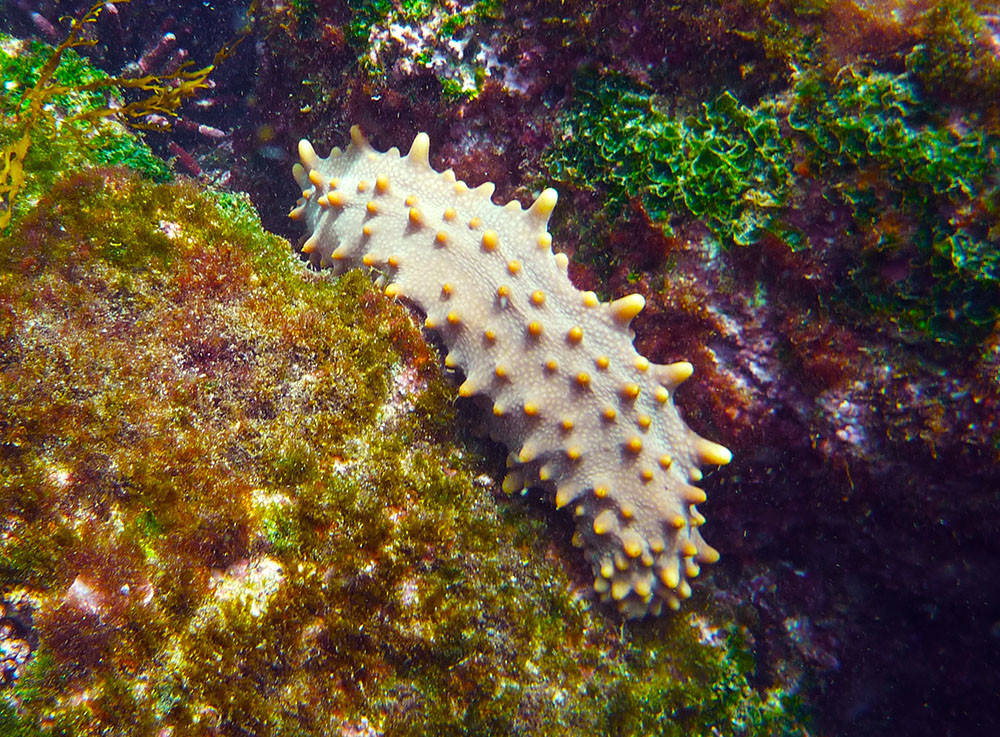
Sea Cucumber © Donna Pieracini
Overexploitation of important fisheries species not only impact livelihoods and provision of food, but also have detrimental effects on marine ecosystems. Different species within ecosystems depend on each other for food and habitats, and when one particular part of that ecosystem collapses, it can create changes for other species. Fishing of large predatory species in the Galapagos such as sharks and also spiny lobsters has resulted in increasing numbers of sea urchins, as there are fewer predators to control their population size. This has led to overgrazing of the coral by the sea urchins. This damages the reef as they feed on important coral-building algae that maintain coral growth. As well as destroying habitats home to thousands of coral reef species, this could also create problems in the future as coral reefs provide protection to coastal areas. If reefs become unstable due to overgrazing they are less resilient to the strength of the ocean. This could become a bigger problem in the future as global climate change leads to more extreme weather events, having potential consequences for coastal communities.

Spiny Lobster © Donna Pieracini
Galapagos Marine Reserve
The Galapagos Marine Reserve is the second largest marine reserve in the world, and covers an area of around 133,000 square kilometres. The reserve dates back several decades when the Terrestrial Management Plan of the Galapagos National Park in 1974 recommended the protection of 2 nautical miles of sea around each island. In 1998 a further law was put into place and the reserve was extended to what it is today.
The reserve is made up of different zones where various activities such as fishing, tourism, or research can or cannot take place. Although industrial fishing is banned within the reserve, local scale ‘artisanal’ fishing is often still permitted. This means that spiny lobsters and sea cucumbers are still taken from areas within the marine reserve. Finfish fisheries are also currently not regulated, and as a result of the size of the reserve and limited resources, controlling and monitoring these activities is difficult.
There is a great need to develop a proper system for managing fisheries in the Galapagos, in addition to promoting sustainable alternatives for the local communities. As mentioned above, overexploitation of targeted fisheries species could have and already is having serious consequences for other species and essential marine habitats. Current projects taking place are adding to several years of monitoring of spiny lobster and sea cucumber to investigate population growth of targeted species such as tuna and grouper. This information should be able to assist authorities in improving fisheries management to reduce overexploitation, and ensure the sustainable development of the Galapagos, its marine environment, and human population.
Related articles

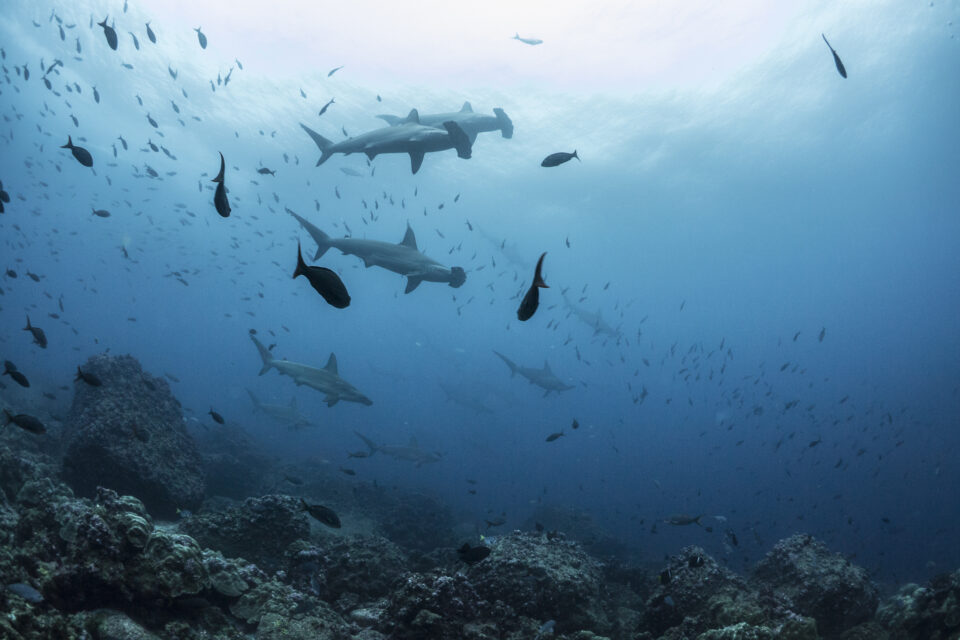
Galapagos marine reserve expansion brings hope - but new management challenges
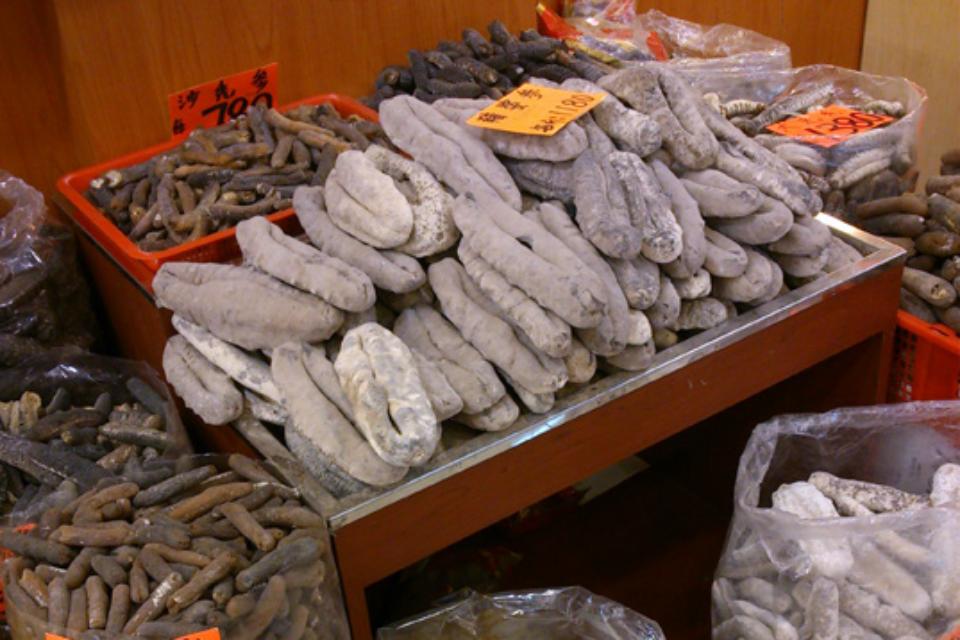
Global relevance: COVID-19 and sea cucumbers
